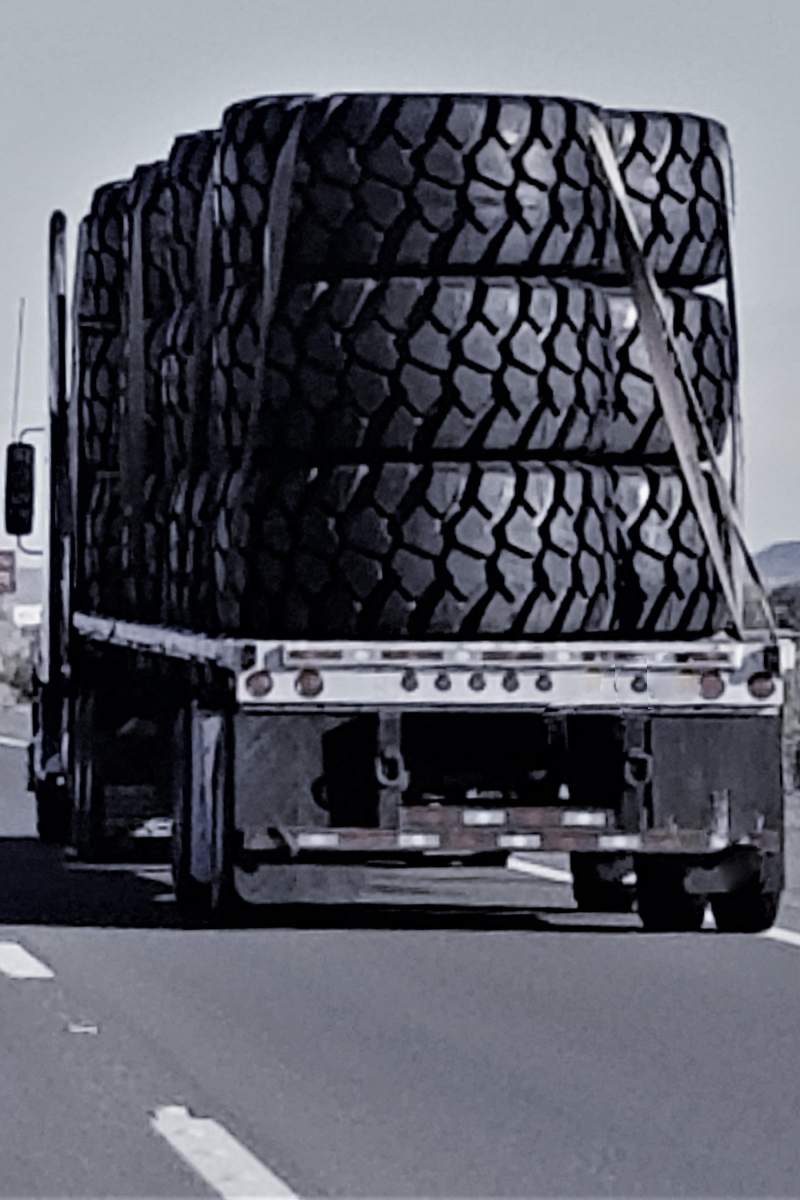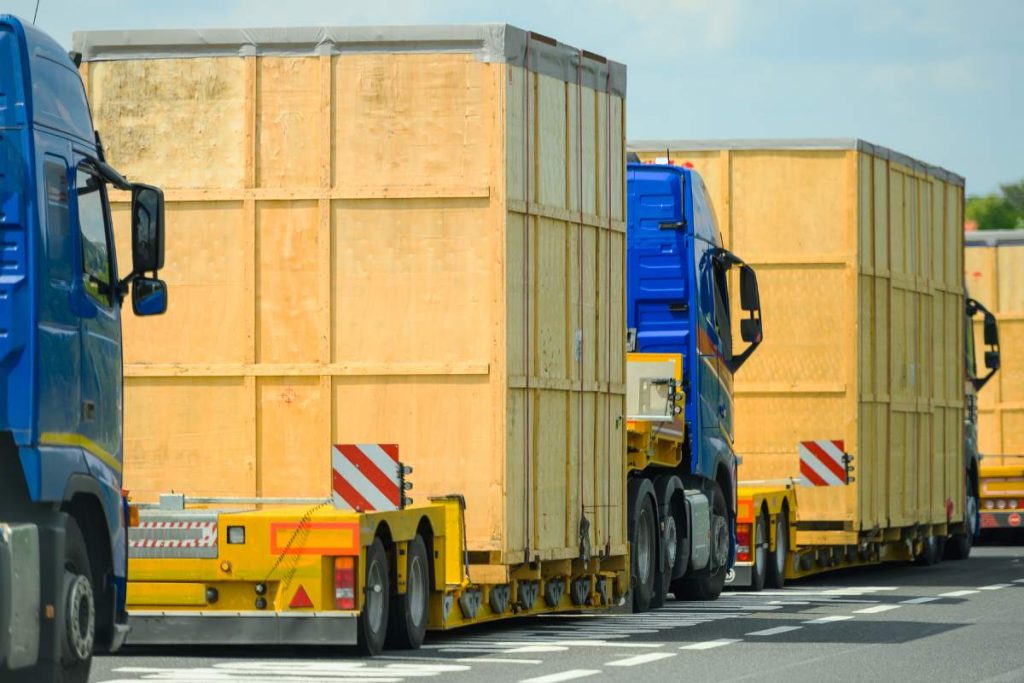in Australia
Loading


When it comes to moving heavy loads across Australia, finding the right transport service can be a challenging task. Whether you’re in the mining, construction, or manufacturing industry, ensuring that your goods are transported safely, efficiently, and at a reasonable cost is crucial. This is where the importance of getting free heavy load transport quotes comes in. It not only helps you compare different service providers but also gives you a clear idea of what to expect in terms of pricing and services.
One of the main reasons why free heavy load transport quotes are so valuable is that they allow you to make informed decisions without any upfront costs. When you’re dealing with heavy loads, you want to ensure that the transport company has the necessary experience, equipment, and licenses to handle the job. By obtaining multiple quotes, you can easily compare these factors and choose the service that best suits your needs.
Free quotes also help you avoid hidden costs. When you receive a detailed quote, it should include everything from fuel surcharges to any additional fees for special equipment or permits. This transparency ensures that you won’t be hit with unexpected expenses once the job is done.
When seeking quotes for heavy load transport, there are a few key things to look for in a company. First, ensure that they have a solid reputation. This can often be determined by reading online reviews or asking for references from previous clients. A company with a proven track record is more likely to deliver your load safely and on time.
Another important factor is the company’s equipment. Transporting heavy loads requires specialized trucks, trailers, and other machinery. The company you choose should have the right tools to handle your specific load. Additionally, their drivers should be highly trained and experienced in dealing with heavy and oversized loads.
You should also consider the company’s knowledge of regulations. Transporting heavy or oversized loads in Australia often requires special permits, and there are strict regulations to follow. A good transport company will be well-versed in these regulations and will handle all the necessary paperwork on your behalf.
By comparing multiple quotes, you can also save money. Prices for heavy load transport can vary significantly from one provider to another, so shopping around is essential. Additionally, comparing quotes can give you leverage when negotiating. If one company offers a lower price but doesn’t include certain services, you can use this information to negotiate a better deal with another provider.
Moreover, comparing quotes gives you a better understanding of the market rate for the service. This knowledge can help you budget more effectively and avoid overpaying for transport services.
When it comes to moving heavy loads across state lines in Australia, finding the right interstate freight transporter is crucial. Whether you’re in construction, mining, or any industry that requires the transportation of large machinery or equipment, choosing a reliable transporter can make a big difference.
Interstate heavy load freight transporters in Australia offer specialized services designed to handle the unique challenges of moving oversized and heavy items safely and efficiently.
Upload Your Cargo Today and Get Free Freight Quotes

Obtaining free heavy load transport quotes in Australia is a smart move. It allows you to compare different service providers, ensures transparency in pricing, and helps you find the best deal for your specific needs.
Whether you’re transporting heavy machinery, construction materials, or any other large load, taking the time to gather and compare quotes can save you both time and money.
So, before you commit to a transport company, make sure you’ve done your research and have a clear understanding of what each provider offers.
Transporting heavy loads across long distances is no small task. It involves careful planning, the right equipment, and a deep understanding of both logistics and regulations. Interstate freight transporters specialize in these areas, ensuring that your heavy loads reach their destination on time and in the best condition.
One of the key reasons to choose a specialized interstate transporter is their expertise in handling oversized loads. Heavy loads often require specialized trailers, such as low loaders, extendable trailers, or modular platforms. These companies have the necessary equipment and experienced drivers who are trained to manage these complex operations.
Experience and Reputation: Look for a company with a strong track record in heavy load transport. Experienced companies are more likely to anticipate challenges and handle them effectively. Check online reviews and ask for references to gauge their reliability.
Equipment and Resources: Ensure the transporter has the necessary equipment to handle your load. This includes the right type of trucks, trailers, and lifting gear. Additionally, the company should have a well-maintained fleet to avoid breakdowns during the journey.
Knowledge of Regulations: Interstate transport in Australia is subject to various regulations, including special permits for oversized loads, route planning to avoid restrictions, and adherence to weight limits. A good transporter will be well-versed in these regulations and will manage all necessary permits and paperwork on your behalf.
Insurance and Safety Measures: Transporting heavy loads comes with inherent risks. Ensure the company has comprehensive insurance coverage to protect your goods in case of accidents or damage. Additionally, inquire about their safety protocols and how they plan to secure your load during transport.
Customer Service: Effective communication is crucial in heavy load transport. The company should keep you informed at every stage of the process, from pick-up to delivery. Good customer service also means being responsive to any concerns or questions you may have.
When selecting an interstate freight transporter, several factors should be considered:
The process of transporting heavy loads interstate involves several key steps:
Initial Consultation: The transporter assesses your needs, including the type of load, weight, dimensions, and destination. They then provide you with a detailed quote.
Route Planning: Given the size and weight of heavy loads, careful route planning is essential. The transporter will map out the best route, taking into consideration road conditions, bridge clearances, and any potential obstacles.
Permits and Documentation: The transporter will secure all necessary permits for crossing state lines and for any oversized load requirements. This includes coordinating with local authorities to ensure compliance with regulations.
Loading and Securing the Load: Proper loading techniques are critical to prevent shifting or damage during transit. The transporter will use specialized equipment to secure the load, ensuring it remains stable throughout the journey.
Transport and Delivery: Once the load is secured, the transport process begins. The company will monitor the journey, providing updates and addressing any issues that may arise. Upon reaching the destination, the load is carefully unloaded and delivered to the specified location.
Using Fillme, a professional transport service, offers numerous benefits:

Transporting heavy loads within local regions in Australia presents its own set of challenges, and choosing the right local freight transporter is crucial to ensuring that your goods are moved safely and efficiently.
Whether you’re in construction, agriculture, manufacturing, or another industry that requires moving large or heavy items, partnering with a reliable local transporter can make a significant difference. Local heavy load freight transporters specialize in short-distance moves, often within the same city or region, and they are equipped to handle the unique demands of these tasks.
Local heavy load freight transporters are experts in managing short-distance moves within a specific region. Their services are particularly beneficial for businesses that need to move large items regularly, such as construction materials, heavy machinery, or industrial equipment. Unlike interstate transport, local transporters are more familiar with the roads, traffic patterns, and regulations specific to their area, allowing for smoother and more efficient operations.
Another advantage of using local transporters is their ability to provide more personalized service. Because they operate within a smaller geographic area, they often offer more flexible scheduling, quicker response times, and better customer service. This localized expertise can lead to fewer delays, lower costs, and a more seamless transport process.
When choosing a local heavy load freight transporter, consider the following factors:
Experience and Expertise: Look for a transporter with extensive experience in handling heavy loads within your area. Their familiarity with local roads and regulations can be a major advantage. Experienced companies are also more likely to have developed efficient processes for loading, securing, and transporting heavy items.
Fleet and Equipment: Ensure that the company has the right type of vehicles and equipment to handle your specific load. For example, they should have access to flatbed trucks, low loaders, or specialized trailers that can accommodate heavy and oversized items. Well-maintained equipment is essential for preventing breakdowns and ensuring the safe delivery of your goods.
Local Knowledge and Regulatory Compliance: Local heavy load transporters should be well-versed in the regulations governing their area, including weight limits, road restrictions, and required permits. This knowledge helps avoid legal issues and ensures compliance with all relevant laws.
Safety Standards and Insurance: Safety is paramount when transporting heavy loads. The transporter should have strict safety protocols in place, including proper loading and securing techniques. Additionally, they should carry comprehensive insurance to cover any potential damage or accidents during transit.
Customer Service and Communication: Good communication is key to a successful transport operation. The company should provide regular updates and be responsive to any questions or concerns you may have. Excellent customer service also includes clear and transparent pricing, with no hidden fees.
The process of transporting heavy loads locally typically involves several steps:
Assessment and Quotation: The transporter will assess your needs, including the size, weight, and nature of the load, as well as the pick-up and delivery locations. Based on this information, they will provide a detailed quote.
Planning and Scheduling: Once you’ve agreed on the terms, the transporter will plan the route and schedule the transport. This planning takes into account factors like road conditions, traffic patterns, and any potential obstacles that could affect the delivery.
Loading and Securing: Proper loading and securing of the load are critical to prevent shifting or damage during transport. The transporter will use specialized equipment and techniques to ensure that the load remains stable throughout the journey.
Transport and Monitoring: During transport, the company will monitor the journey to ensure everything goes according to plan. They will also provide updates on the status of the delivery.
Delivery and Unloading: Upon arrival at the destination, the transporter will carefully unload the heavy load and ensure it is placed in the designated area. Any final checks are conducted to confirm the load has been delivered safely.
After comparing quotes, you’ll see Fillme is the best that meets your needs in terms of cost, service quality, and reliability. Contact us to confirm the details, clarify any questions, and schedule the transportation.

